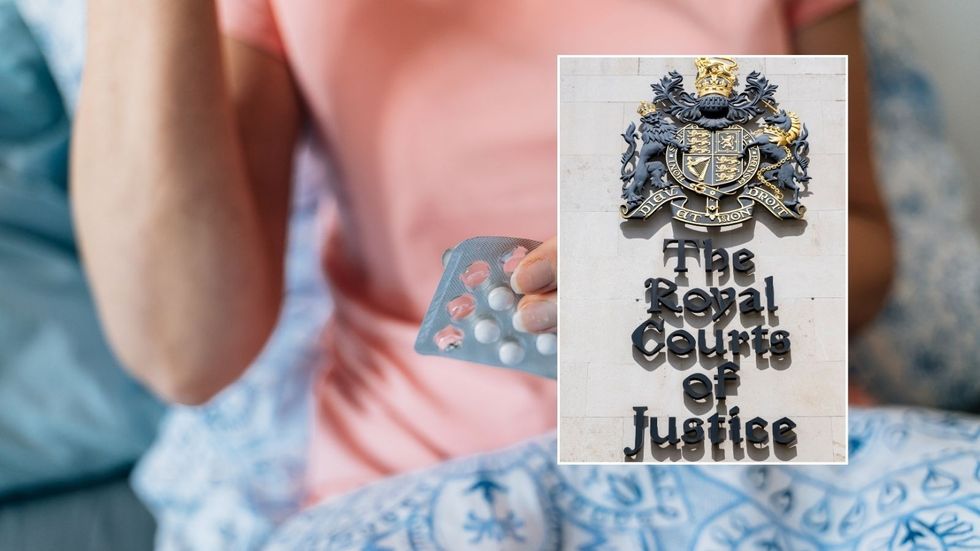A desperate mother is today challenging a High Court decision that allows her 16-year-old daughter to pursue cross-sex hormone treatment through a private clinic.
The landmark legal case, which has divided the family and sparked intense public debate, is being heard at the Court of Appeal, raising critical questions about parental rights, medical ethics, and the role of private gender clinics.
The mother, whose identity is protected for legal reasons, had previously sought to block her daughter —referred to as Child Q in court— from accessing testosterone treatment at the private clinic Gender Plus. Her concerns centred on the safety of irreversible medical interventions and the influence of ‘affirming’ practices on her daughter’s decision-making.
In April, the High Court ruled against the mother’s application to prevent the father from allowing the child private hormone treatment. The court sided with the father, who has supported Child Q’s transition from female to male since she was 12, arguing that the teenager had the legal capacity to consent under the Family Law Reform Act 1969.
The mother is now appealing the decision, calling for stricter oversight of experimental treatments for minors in private practice.
Solicitor Paul Conrathe, said: “This appeal raises critical questions about the impact of the Cass Review upon the delivery of private gender medicine to teenagers.

The mother had previously sought to block her daughter from accessing testosterone treatment at the private clinic Gender Plus
GETTY
“My client is appealing so that this highly controversial treatment, which has very poor evidence for its effectiveness and has lifelong consequences, should be subject to careful scrutiny by the courts before it is given.”
The case has exposed stark divisions between the parents. The father, described in court as “permissive and indulgent,” allowed Child Q to socially transition at school and provided her with a breast binder as a young teenager. Meanwhile, the mother—portrayed as “appropriately balanced”—voiced concerns about the long-term implications of medical transition and its lack of robust evidence.
As a result, Child Q has distanced herself from her mother, now living primarily with her father and stepmother in what critics have described as an “affirmation bubble.” The mother has argued that this environment has reinforced Child Q’s identity as male, leaving little room for alternative perspectives.
The teenager’s relationship with her mother has significantly deteriorated, with Child Q accusing her of obstructing her transition and misgendering her. The mother argues she has acted in her daughter’s best interests, despite the personal toll.
The court ruling has also drawn attention to private clinics like Gender Plus, which critics claim lack the rigorous standards recommended by the Cass Review, an independent report on gender identity services. The Cass Review emphasised “extreme caution” in providing cross-sex hormones to minors, citing unproven benefits and unknown risks. It also stated all children seeking cross sex hormones are assessed by an independent team of mental health experts.
The mother’s legal team has raised concerns that Gender Plus, staffed by former Tavistock clinicians, operates under an affirming model criticised for inadequate assessment protocols. The clinic’s registration by the Care Quality Commission (CQC) has been challenged, with opponents arguing it provides a veneer of credibility to practices that failed children at the now-closed Tavistock GIDS.
The case has reignited public debate over the capacity of children to consent to life-altering treatments. While the court upheld Child Q’s right to make medical decisions at 16, the mother and her supporters argue that the law, established in 1969, is ill-equipped to address the complexities of gender transition treatments.
The Cass Review’s findings support this caution, noting that clinicians cannot reliably predict which young people will transition successfully or later regret their decisions. NHS England has since implemented stricter protocols, including multidisciplinary assessments and individual care plans, but private clinics remain outside these frameworks.
As the case heads to the Court of Appeal, it raises urgent questions about the adequacy of legal protections for children, the role of parental consent, and the responsibilities of private healthcare providers. For the mother, the appeal represents a last stand to safeguard her daughter from what she views as experimental and potentially harmful treatment.
“This is an exceptional case,” the mother’s legal team argued, “and it’s time the law recognised that.”
The outcome of the appeal could set a precedent for future cases, shaping the rules over adolescent autonomy and parental responsibility in one of the most contentious issues of our time.
Gender Plus declined to comment on the individual case, but insisted it follows the recommendations of the Cass Review.
It also pointed out that the clinic has been regulated by the healthcare regulator the Care Quality Commission which has rated it as “outstanding”.
An MHRA spokesperson said: “Patient safety is our top priority. It’s inappropriate for us to comment ahead of this debate.”